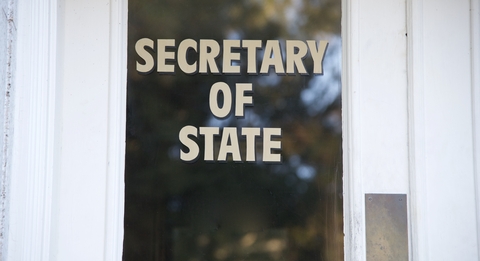Sources matter
When you’re looking for information, whether it’s for an investigation, strategic planning, or making decisions, your sources matter. Skipping a source or using the wrong ones will change your results and may lead you in the wrong direction. And you never know what you might be missing.
In previous posts I talked about the Big6 and information literacy. When you’re faced with any sort of information need, you want to take a systematic approach to filling that need or you’ll run the risk of wasting time, money, and other resources. You also risk making mistakes.
In Step 1 of the Big6 model, you defined your questions—the starting point for research. In Step 2, it’s time to think about a strategy for answering those questions and what sources you’ll use.
Here’s how it works:
What type of information do you need?
Are you looking for background information or something more in-depth? Current info or past? Info about people, companies, properties, lawsuits—or all of the above? Do you need something you can use as evidence, or are you looking for information that will lead you to that one important document?
Do you need online or offline research? Not everything’s online, so, after some initial online research to get up to speed, you may need interviews, manual court searches, surveillance, or other field work. Maybe even a library book.
For database searching, do you know all the possibilities? Mention “database” to a group of investigators, and most will immediately think about TLO, Tracers, or other investigative databases. But there’s so much more than credit headers and comprehensive reports. Expand your thinking, and don’t forget about the news, company directories, patent and trademark databases.
The point of this step is to make sure you’re aware of the possibilities, and then you can make the best choices. Which leads me to the second part of Step 2.
What kinds of sources will help you find what you need?
Now that you know what types of information, it’s time to identify which sources will take you there. Here are some things to keep in mind when selecting sources:
*Consider time and budget. Talking to past employers is always enlightening in a background investigation, but it takes time, and it may be too early in your client’s process for this type of in-depth due diligence.
*Do you need direct sources or can you work with the aggregators? Aggregators gather info from other sources, so they can save time and help you cast a wide net. But it’s important to know their limitations and when to go straight to the source.
*Always use more than one source so you can verify facts and fill in the gaps. Interview enough people to get more than one point of view. Check an additional news source, because there’s always something the others miss.
*Consider fee-based services, because you won’t find everything for free. While there’s more available on the open web than ever before, premium databases may be worth the investment.
*Use trusted sources, because your business and your clients deserve the best. Get recommendations from colleagues or ask a librarian. And it’s fair to ask your sources where they get their information.
Your sources matter. Take the time to know what’s available and what’s best for each situation—and let me know if you have any other tips for selecting the best sources.



